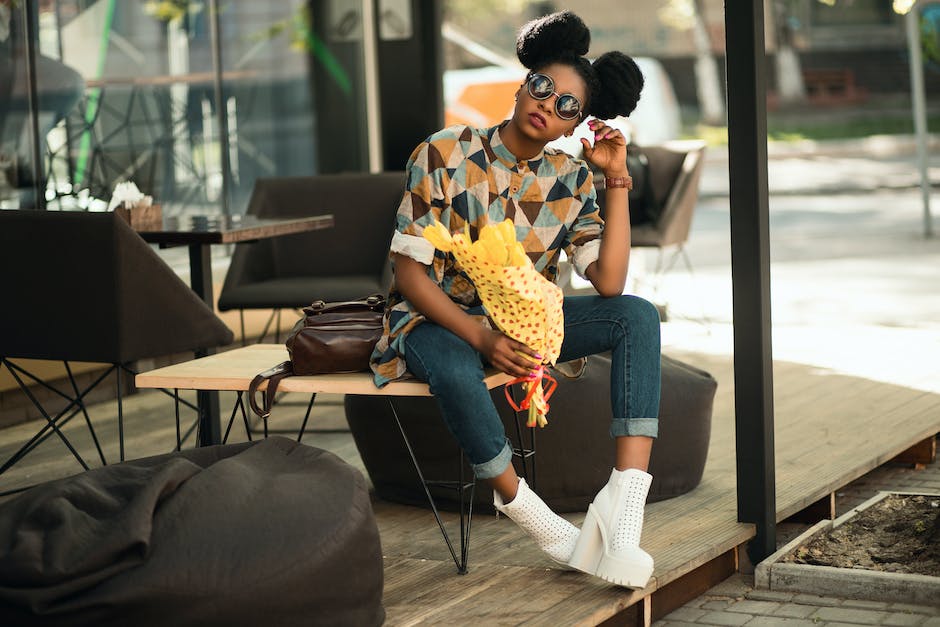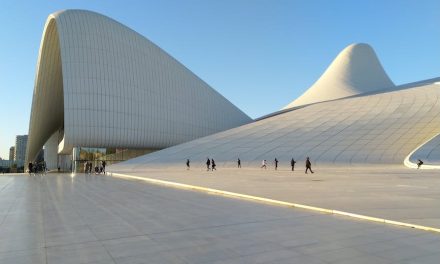Table of Contents
“Arab Leaders in the Fashion Industry: Tailoring the Future” – Redefining Style, Inspiring Innovation.
Introduction
“Arab Leaders in the Fashion Industry: Tailoring the Future” explores the significant contributions and influence of Arab leaders in the fashion industry. This article delves into the innovative designs, cultural inspirations, and entrepreneurial spirit that have propelled Arab fashion designers to the forefront of the global fashion scene. By showcasing their unique perspectives and creative talents, these Arab leaders are shaping the future of fashion and leaving an indelible mark on the industry.
The Rise of Arab Fashion Icons: Pioneering a New Era

The fashion industry has long been dominated by Western designers and influencers, but in recent years, Arab fashion icons have been making their mark on the global stage. These trailblazers are not only changing the perception of Arab fashion but also paving the way for a new era of creativity and innovation in the industry.
One of the most prominent Arab fashion icons is Elie Saab, a Lebanese designer who has gained international recognition for his exquisite couture creations. Saab’s designs have graced red carpets around the world, worn by celebrities such as Halle Berry and Angelina Jolie. His intricate beadwork and attention to detail have become synonymous with Arab fashion, showcasing the rich cultural heritage of the region.
Another Arab fashion icon who has made waves in the industry is Zuhair Murad. Like Saab, Murad is a Lebanese designer known for his glamorous and feminine designs. His creations have been worn by A-list celebrities like Jennifer Lopez and Beyoncé, solidifying his status as a go-to designer for red carpet events. Murad’s designs often feature intricate embroidery and luxurious fabrics, reflecting the opulence and elegance of Arab fashion.
In addition to individual designers, Arab fashion weeks have also emerged as platforms for showcasing the talent and creativity of Arab designers. Dubai Fashion Week, for example, has become a major event in the fashion calendar, attracting designers, buyers, and influencers from around the world. This annual event not only provides a platform for Arab designers to showcase their collections but also fosters collaboration and exchange of ideas within the industry.
The rise of Arab fashion icons and the emergence of Arab fashion weeks have not only put Arab fashion on the map but have also challenged stereotypes and misconceptions about the region. Arab fashion is often associated with conservative clothing, but these designers are proving that Arab fashion can be both modest and fashionable. They are redefining what it means to be stylish in the Arab world and are inspiring a new generation of designers to push boundaries and experiment with their designs.
Furthermore, Arab fashion icons are not only making waves in the industry but also using their platform to promote social change and empowerment. Many Arab designers are actively involved in philanthropic efforts, supporting causes such as women’s empowerment and education. They are using their influence to break down barriers and empower women in the Arab world, challenging traditional gender roles and promoting inclusivity.
The rise of Arab fashion icons is a testament to the talent and creativity that exists in the region. These designers are not only creating beautiful garments but also shaping the future of the fashion industry. Their unique perspective and cultural heritage are bringing a fresh and exciting element to the global fashion scene, and their influence is only set to grow in the coming years.
In conclusion, Arab fashion icons are pioneering a new era in the fashion industry. Through their creativity, innovation, and philanthropic efforts, they are challenging stereotypes, promoting social change, and shaping the future of fashion. The rise of Arab fashion weeks and the global recognition of designers like Elie Saab and Zuhair Murad are a testament to the talent and influence of Arab fashion icons. As the industry continues to evolve, it is clear that Arab designers will play a significant role in shaping its future.
Arab Fashion Designers: Redefining Cultural Identity on the Runway
Arab Fashion Designers: Redefining Cultural Identity on the Runway
The fashion industry has long been a platform for self-expression and creativity, allowing designers to showcase their unique perspectives and cultural influences. In recent years, Arab fashion designers have emerged as influential figures in the industry, redefining cultural identity on the runway and challenging traditional notions of fashion.
One of the key factors contributing to the rise of Arab fashion designers is the increasing global recognition of Arab culture. With the advent of social media and the internet, the world has become more interconnected, allowing for the dissemination of diverse cultural influences. Arab designers have seized this opportunity to showcase their rich heritage and challenge stereotypes associated with Arab fashion.
One such designer is Zuhair Murad, whose intricate designs have graced the red carpet and garnered international acclaim. Murad’s designs often incorporate traditional Arab motifs, such as intricate embroidery and luxurious fabrics, while also incorporating modern elements. By blending traditional and contemporary influences, Murad has successfully created a unique aesthetic that resonates with audiences worldwide.
Another prominent Arab designer is Elie Saab, whose elegant and feminine designs have become synonymous with luxury and sophistication. Saab’s designs often feature intricate beadwork, delicate lace, and flowing silhouettes, drawing inspiration from his Lebanese heritage. His ability to seamlessly blend traditional Arab craftsmanship with modern design techniques has earned him a loyal following and a place among the fashion elite.
In addition to individual designers, Arab fashion weeks have also gained traction in recent years, providing a platform for emerging talent to showcase their work. Arab Fashion Week, held in Dubai, has become a prominent event in the fashion calendar, attracting designers, buyers, and influencers from around the world. This event not only showcases the talent of Arab designers but also serves as a catalyst for the growth of the Arab fashion industry as a whole.
The rise of Arab fashion designers has also had a significant impact on cultural identity. By challenging stereotypes and showcasing the diversity of Arab culture, these designers have played a crucial role in redefining how Arab fashion is perceived. They have shown that Arab fashion is not limited to traditional garments such as the abaya or the thobe, but can also encompass a wide range of styles and influences.
Furthermore, Arab designers have also been instrumental in promoting sustainability and ethical practices within the fashion industry. Many designers have embraced eco-friendly materials and production methods, recognizing the importance of preserving the environment and supporting local communities. By incorporating these values into their designs, Arab designers are not only creating beautiful garments but also contributing to a more sustainable and responsible fashion industry.
In conclusion, Arab fashion designers have emerged as influential figures in the industry, redefining cultural identity on the runway and challenging traditional notions of fashion. Through their unique designs and innovative approaches, they have successfully showcased the richness and diversity of Arab culture. As the global fashion industry continues to evolve, Arab designers will undoubtedly play a crucial role in shaping its future.
Arab Fashion Influencers: Shaping Trends and Inspiring Change
Arab Fashion Influencers: Shaping Trends and Inspiring Change
The fashion industry is a dynamic and ever-evolving field that is constantly influenced by various factors, including culture, history, and individual creativity. In recent years, Arab fashion influencers have emerged as powerful voices in the industry, shaping trends and inspiring change. These individuals have not only made a significant impact on the fashion world but have also challenged stereotypes and promoted diversity.
One of the most prominent Arab fashion influencers is Huda Kattan, the founder of Huda Beauty. With over 50 million followers on Instagram, Kattan has built a beauty empire that has revolutionized the cosmetics industry. Her success can be attributed to her ability to connect with her audience and provide them with products that cater to their needs. Kattan’s influence extends beyond the beauty industry, as she has also been a vocal advocate for body positivity and inclusivity.
Another influential figure in the Arab fashion industry is Elie Saab, a Lebanese fashion designer known for his exquisite couture creations. Saab’s designs have graced red carpets around the world, worn by celebrities such as Beyoncé and Angelina Jolie. His ability to blend traditional Middle Eastern aesthetics with modern design elements has earned him international acclaim. Saab’s success has not only put Arab fashion on the global map but has also inspired a new generation of designers to embrace their cultural heritage.
In addition to individual influencers, Arab fashion weeks have also gained prominence in recent years. These events provide a platform for Arab designers to showcase their talent and creativity. Dubai Fashion Week, for example, has become a major event in the fashion calendar, attracting designers, buyers, and fashion enthusiasts from around the world. These fashion weeks not only promote Arab fashion but also foster collaboration and exchange between designers from different backgrounds.
Arab fashion influencers have also played a crucial role in challenging stereotypes and promoting diversity in the industry. They have shattered the notion that Arab women are confined to traditional clothing and have shown that they can be both fashionable and modest. Influencers like Leena Al Ghouti and Ascia Al Faraj have used their platforms to showcase their unique style, blending traditional Arab garments with contemporary fashion trends. Their influence has not only empowered Arab women but has also encouraged designers to create collections that cater to a diverse range of body types and cultural backgrounds.
Furthermore, Arab fashion influencers have been at the forefront of promoting sustainability and ethical fashion practices. They have raised awareness about the environmental impact of the fashion industry and have encouraged consumers to make more conscious choices. Influencers like Dana Hourani and Yara Shahidi have used their platforms to promote sustainable fashion brands and highlight the importance of responsible consumption. Their efforts have not only influenced consumer behavior but have also pushed fashion brands to adopt more sustainable practices.
In conclusion, Arab fashion influencers have emerged as powerful voices in the industry, shaping trends and inspiring change. Through their creativity, individuality, and advocacy, they have challenged stereotypes, promoted diversity, and encouraged sustainability. Their influence extends beyond the fashion world, as they have become role models for a new generation of designers and fashion enthusiasts. As the Arab fashion industry continues to grow, these influencers will undoubtedly play a crucial role in shaping its future.
Arab Fashion Entrepreneurs: Building Empires in the Global Market
Arab Fashion Entrepreneurs: Building Empires in the Global Market
The fashion industry has long been dominated by Western designers and brands, but in recent years, Arab fashion entrepreneurs have been making their mark on the global stage. These innovative and talented individuals are not only reshaping the industry but also challenging stereotypes and showcasing the rich cultural heritage of the Arab world.
One such entrepreneur is Elie Saab, a Lebanese fashion designer who has gained international recognition for his exquisite couture creations. Saab’s designs have graced red carpets around the world, and his brand has become synonymous with elegance and sophistication. His success has paved the way for other Arab designers to gain recognition and establish their own fashion empires.
Another prominent figure in the Arab fashion industry is Mohammed Ashi, the founder of the luxury fashion label Ashi Studio. Ashi’s designs are known for their intricate details and architectural silhouettes, and he has dressed numerous celebrities for major events. His unique aesthetic has garnered him a loyal following and solidified his position as a leading Arab fashion designer.
In addition to individual designers, Arab fashion entrepreneurs have also been successful in launching their own fashion houses. One example is the Dubai-based brand, Bouguessa, founded by Faiza Bouguessa. Bouguessa’s designs are known for their minimalist yet sophisticated style, and her brand has gained a global following. Her success highlights the growing influence of Arab fashion entrepreneurs in the global market.
The rise of Arab fashion entrepreneurs can be attributed to several factors. Firstly, the Arab world has a rich cultural heritage, and designers are drawing inspiration from their roots to create unique and innovative designs. This infusion of cultural elements into fashion has resonated with consumers around the world, who are increasingly seeking out authentic and diverse fashion choices.
Secondly, the Arab fashion industry has been supported by government initiatives and investments. Countries like the United Arab Emirates and Saudi Arabia have recognized the potential of the fashion industry and have taken steps to promote and nurture local talent. This support has provided Arab fashion entrepreneurs with the resources and opportunities needed to succeed in the global market.
Furthermore, the rise of social media and e-commerce has played a significant role in the success of Arab fashion entrepreneurs. Platforms like Instagram have allowed designers to showcase their work to a global audience, bypassing traditional gatekeepers in the industry. This has democratized the fashion industry and given Arab designers a platform to reach consumers directly.
Despite their success, Arab fashion entrepreneurs still face challenges in the global market. One of the main obstacles is breaking through the Western-dominated fashion industry and gaining recognition on a global scale. However, with their unique designs and strong cultural identity, Arab fashion entrepreneurs are slowly but surely making their mark and challenging the status quo.
In conclusion, Arab fashion entrepreneurs are reshaping the global fashion industry with their innovative designs and rich cultural heritage. Through their creativity and determination, they are building fashion empires that are gaining recognition on a global scale. With continued support from governments and the growing influence of social media, Arab fashion entrepreneurs are tailoring the future of the industry and showcasing the beauty and diversity of the Arab world.
Q&A
1. What is “Arab Leaders in the Fashion Industry: Tailoring the Future” about?
“Arab Leaders in the Fashion Industry: Tailoring the Future” is a discussion or event focused on showcasing and highlighting the influential Arab leaders in the fashion industry and their contributions to shaping its future.
2. Who are the Arab leaders in the fashion industry?
The Arab leaders in the fashion industry are individuals of Arab descent who have made significant contributions and achieved success in various aspects of the fashion world, such as design, modeling, entrepreneurship, or creative direction.
3. What is the purpose of “Arab Leaders in the Fashion Industry: Tailoring the Future”?
The purpose of “Arab Leaders in the Fashion Industry: Tailoring the Future” is to recognize and celebrate the achievements of Arab leaders in the fashion industry, while also discussing their impact on the industry’s future and promoting diversity and inclusion within the fashion world.
4. Why is it important to highlight Arab leaders in the fashion industry?
Highlighting Arab leaders in the fashion industry is important to showcase their talent, creativity, and contributions, which often go unrecognized. It helps to break stereotypes, promote diversity, and inspire aspiring fashion professionals from Arab backgrounds.
Conclusion
In conclusion, Arab leaders in the fashion industry are playing a significant role in shaping the future of fashion. Their innovative designs, cultural influences, and commitment to sustainability are making a mark on the global fashion scene. With their unique perspectives and creative talents, Arab fashion leaders are tailoring the future of the industry, bringing forth a fusion of tradition and modernity that is both captivating and influential.




